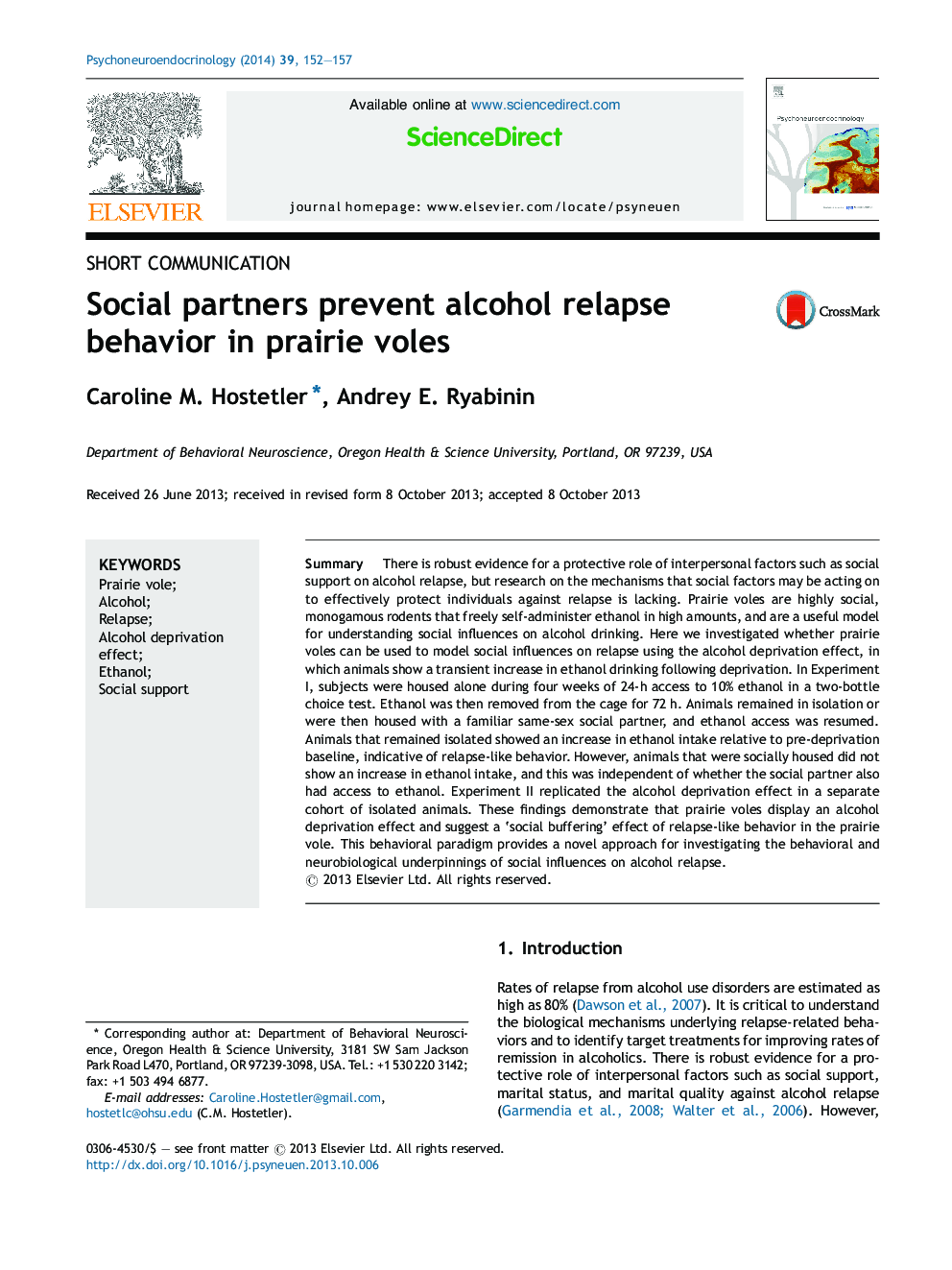| کد مقاله | کد نشریه | سال انتشار | مقاله انگلیسی | نسخه تمام متن |
|---|---|---|---|---|
| 6819908 | 547134 | 2014 | 6 صفحه PDF | دانلود رایگان |
عنوان انگلیسی مقاله ISI
Social partners prevent alcohol relapse behavior in prairie voles
ترجمه فارسی عنوان
شرکای اجتماعی باعث جلوگیری از رفتار عود الکل در پرتقال می شوند
دانلود مقاله + سفارش ترجمه
دانلود مقاله ISI انگلیسی
رایگان برای ایرانیان
کلمات کلیدی
دروازه پرید الکل، تسکین دهنده اثر محرومیت الکلی، اتانول، حمایت اجتماعی،
موضوعات مرتبط
علوم زیستی و بیوفناوری
بیوشیمی، ژنتیک و زیست شناسی مولکولی
علوم غدد
چکیده انگلیسی
There is robust evidence for a protective role of interpersonal factors such as social support on alcohol relapse, but research on the mechanisms that social factors may be acting on to effectively protect individuals against relapse is lacking. Prairie voles are highly social, monogamous rodents that freely self-administer ethanol in high amounts, and are a useful model for understanding social influences on alcohol drinking. Here we investigated whether prairie voles can be used to model social influences on relapse using the alcohol deprivation effect, in which animals show a transient increase in ethanol drinking following deprivation. In Experiment I, subjects were housed alone during four weeks of 24-h access to 10% ethanol in a two-bottle choice test. Ethanol was then removed from the cage for 72Â h. Animals remained in isolation or were then housed with a familiar same-sex social partner, and ethanol access was resumed. Animals that remained isolated showed an increase in ethanol intake relative to pre-deprivation baseline, indicative of relapse-like behavior. However, animals that were socially housed did not show an increase in ethanol intake, and this was independent of whether the social partner also had access to ethanol. Experiment II replicated the alcohol deprivation effect in a separate cohort of isolated animals. These findings demonstrate that prairie voles display an alcohol deprivation effect and suggest a 'social buffering' effect of relapse-like behavior in the prairie vole. This behavioral paradigm provides a novel approach for investigating the behavioral and neurobiological underpinnings of social influences on alcohol relapse.
ناشر
Database: Elsevier - ScienceDirect (ساینس دایرکت)
Journal: Psychoneuroendocrinology - Volume 39, January 2014, Pages 152-157
Journal: Psychoneuroendocrinology - Volume 39, January 2014, Pages 152-157
نویسندگان
Caroline M. Hostetler, Andrey E. Ryabinin,
